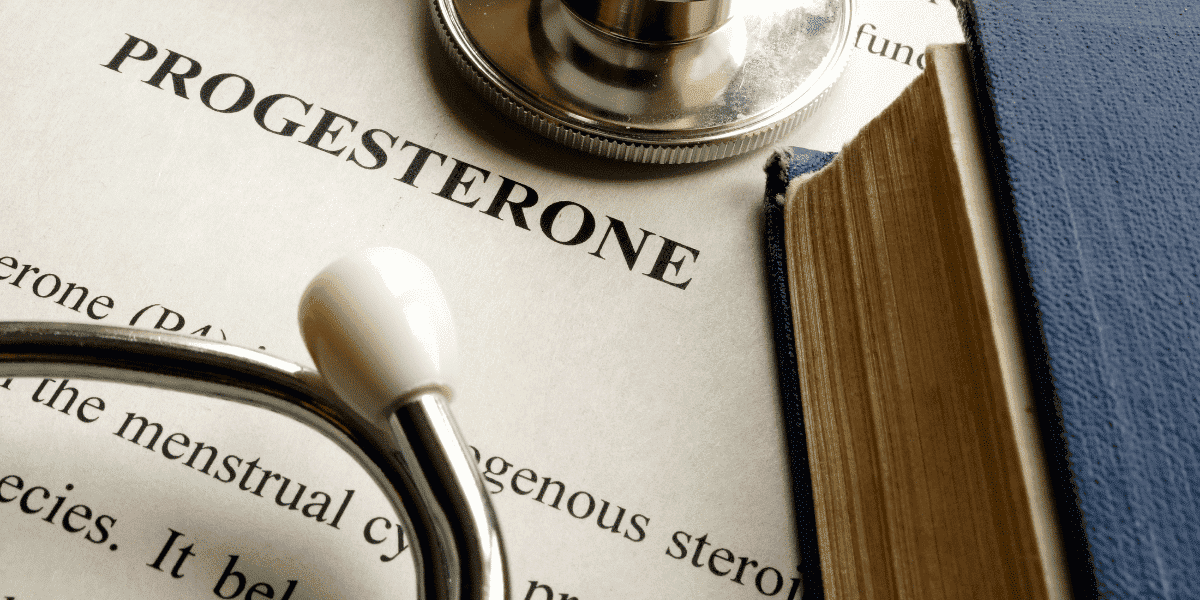The Surprising Heart Healthy Hormone. When people think of hormones for the heart many women recognize that there may be beneficial effects from estrogen and men recognize the benefits of testosterone, However, progesterone plays a pivotal role in cardiovascular disease and the type matters.
It was thought that only a woman with a uterus needs progesterone. However, progesterone has been found to have beneficial effects on the brain, the bones, blood pressure, fluid retention, the blood vessel walls and the prostate. Progesterone regulates many biologically distinct processes in a broad range of tissues.

Since cardiovascular disease is the number one cause of death in women and many women avoid hormone replacement therapy due to the risk of breast cancer, let’s put this in perspective. Cardiovascular disease affects approximately 47.8 million women, and breast cancer affects approximately 3.32 million women. Therefore, cardiovascular disease is about 14 times more likely to occur than breast cancer. Older women are more likely to die of diseases other than breast cancer, and CVD is the most frequent cause. When considering your risk of either condition, it may be helpful to consider the effect of a surprising hormone on the heart – progesterone!
Progesterone by any other name is NOT Progesterone!
One very big caveat which I have to drill home is that progesterone is the natural or bioidentical form that is found in humans and it differs significantly from the synthetic versions classified as progestins. Medroxyprogesterone (MPA) is a synthetic progesterone that was extensively studied in the Women’s Health Initiative. The HERS, WHI, WISDOM, and WISE studies all used MPA, not progesterone, in combination with Premarin a synthetic estrogen.
The big problem is when you read the headlines or titles in journals, they lump the two together and call progestins progesterone even though they are not the same. Progesterone and micronized progesterone are the same as what is found in the human body so when reading an article or headline, be careful to dig deeper and look at what was used in the study.
Here are some of the benefits of taking natural, bioidentical progesterone.
Spasm of the coronary artery
Women have smaller arteries than men and their symptoms of artery spasm or angina are also different. Natural, bioidentical progesterone relaxes the arteries and dilates them allowing more blood to flow to the heart keeping the tissue healthy and alive. Whereas synthetic progestins blocked the beneficial effects of estrogen and allowed arteries to spasm and decrease blood flow. Tissues in the heart or anywhere else that lack blood flow and oxygen die. The destruction of tissue in the heart is a heart attack and, in the brain, it is called a stroke. Studies conclude that medroxyprogesterone, a synthetic progestin increases the risk of coronary artery spasm while natural, bioidentical micronized progesterone decreases artery spasms.
Blood Pressure
Progesterone is a natural diuretic and relaxes the smooth muscle of arteries preventing constriction relieving pressure. These two actions lower the fluid retention and pressure in the arteries which lowers blood pressure.
Progesterone blocks the action of a hormone angiotensin II. The overall effect of angiotensin II is to increase blood pressure, body water and sodium or salt in the bloodstream. Angiotensin II stimulates production of the hormone aldosterone in the adrenal gland which also enables the body to retain sodium salt and lose potassium from the kidneys.
Angiotensin Converting Enzyme (ACE) or Angiotensin Receptor Blocker (ARB) inhibitors are widely used blood pressure control medications. Perhaps progesterone may be helpful to reduce blood pressure and have even more benefits of alleviating anxiety, fluid retention, insomnia and other effects of hormone imbalances.
Blood Clots
Blood clots that form in deep veins called deep vein thrombosis (DVT) can break off and travel to the pulmonary arteries in the lungs. This may cause symptoms such as shortness of breath, palpitations, lightheadedness and chest pain. These emboli block off arteries in your lungs causing infarcts or damage and death to lung tissue. This damage can deprives your body of vital oxygen and is life threatening.
Most birth control pills that contain synthetic progestins have a warning on the label of increased risk of thromboembolism or clots. Oral estrogen and synthetic progestins can increase the risk of clots. Whereas, studies showed the use of natural, bioidentical micronized progesterone did not increase the risk of clots.
Guidelines and Better Choices
Like everything else our approach to prevention and treatment is always evolving. When making any decisions you must consider the risks versus benefits of treatment or no treatment. Guidelines from the North American Menopause Society, the Endocrine Society, the International Menopause Society are specific guidelines. The European Menopause and Andropause Society for the management of menopausal women with a personal or family history of venous thromboembolism (VTE). All contain positive statements regarding both transdermal estradiol (given through the skin) and micronized progesterone.
Unlike oral estrogens, transdermal (through the skin) estradiol has been shown not to increase the risk of VTE. In addition, stroke and to confer a significantly lower risk for gallbladder disease. Unlike some progestogens, progesterone is also not associated with an increased risk of VTE. Furthermore, with an increased risk of breast cancer. Based on these data, the use of transdermal estradiol and micronized progesterone could reduce or possibly even negate the excess risk of VTE. After that, stroke, cholecystitis, and possibly even breast cancer associated with oral HRT use.
Consider Risk Benefit and Experience
Considering managing symptoms of hormone imbalances and protecting against cardiovascular disease and breast cancer. Be sure to consult someone with experience in looking at lifestyle and risks factors. Knowing the optimal dose and form of hormone replacement can greatly enhance the quality of life. For instance, affording you benefits and minimizing risks. Lorraine Maita, MD has a wealth of experience and takes a holistic integrative, anti-aging and functional medicine approach. Find out if hormone replacement therapy is right for you and book a free clarity call by filling out the application on the contact page of her website HowToLiveYounger.com.





She is a recognized and award-winning holistic, functional, integrative and anti-aging healthcare practitioner, speaker and author, and has been featured in ABC News, Forbes, WOR Radio and many media outlets to spread the word that you can live younger and healthier at any age.